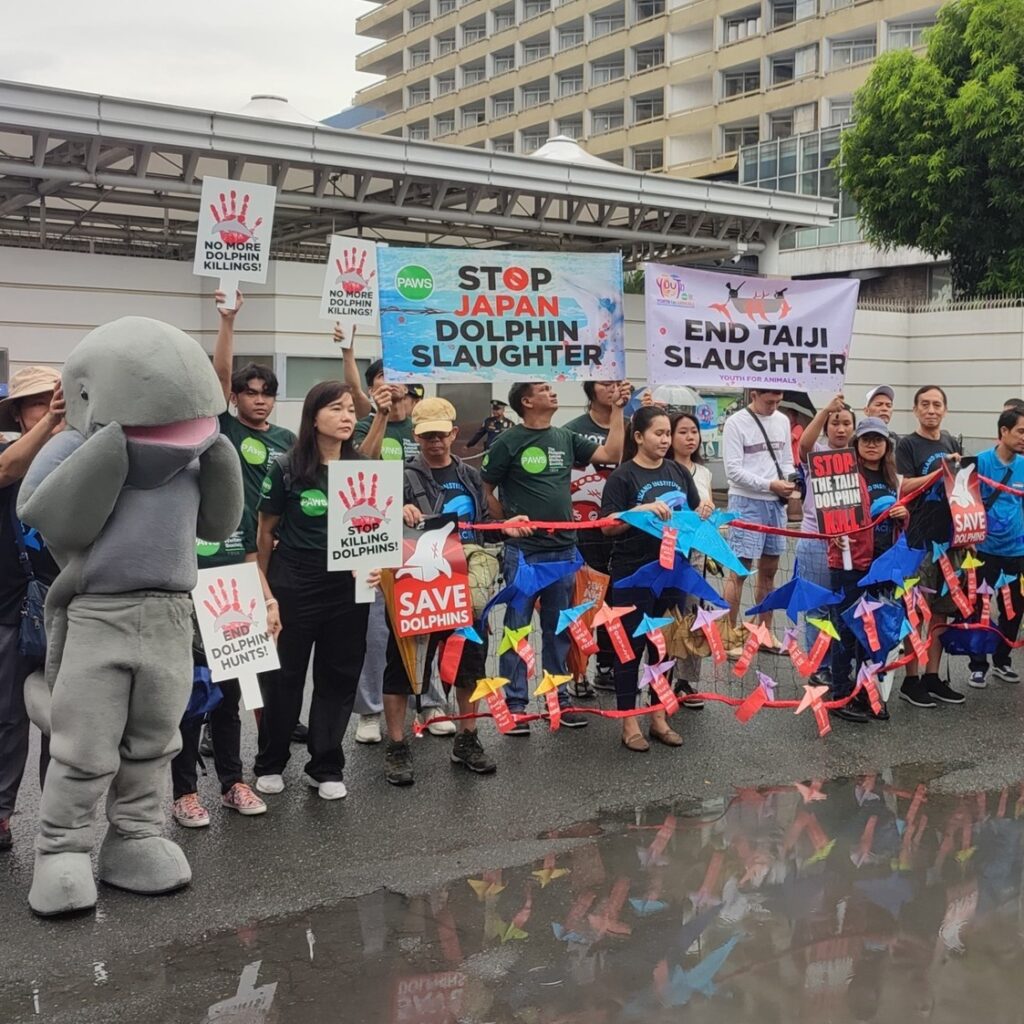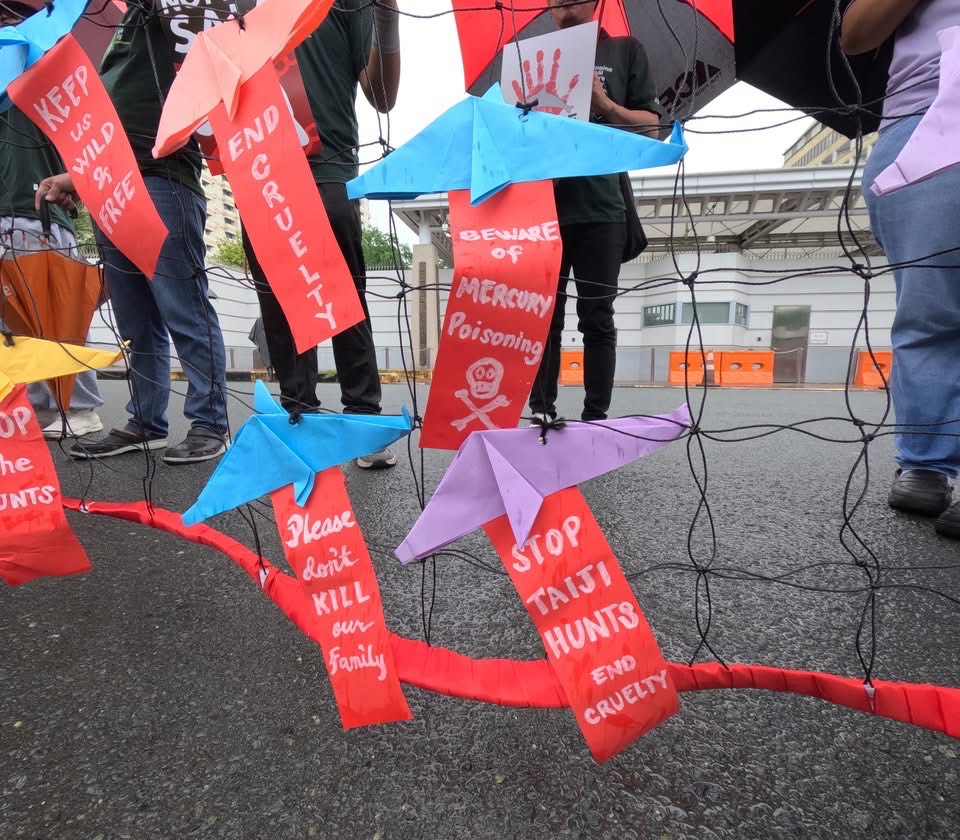
MANILA, Philippines – Marine conservation and animal welfare advocates handed folded paper dolphins to staff and bypassers at the Japanese Embassy on September 1. Each origami dolphin symbolized hope for an end to the annual dolphin hunts in Taiji, Japan.
The peaceful protest, part of the global Japan Dolphin Day campaign, was organized by Earth Island Institute Asia Pacific (EII-AP), with the Philippine Animal Welfare Society (PAWS), and allied groups. Drawing from the Japanese tradition of origami as a symbol of hope and peace, the paper dolphins represented a vision of oceans where marine mammals live free from slaughter and captivity.
Taiji’s hunts, exposed in the Oscar-winning documentary The Cove, involve driving dolphins into a cove. The most “marketable” are sold alive to marine parks worldwide, while the rest are killed for meat. Once in captivity, advocates claim that dolphins are often starved into compliance and forced to perform tricks, which strips them of freedom and natural instincts.
In past decades, Taiji hunters killed more than a thousand dolphins annually, with about a hundred captured alive. By 2023–24, around 833 were reported slaughtered. In the most recent 2024–25 season, only 286 dolphins were killed, while 94 were captured alive. Advocates explain that the decline in slaughter is due to two harsh realities: the depletion of local dolphin populations and the sharp decline in Japanese demand for dolphin meat, which is often contaminated with high levels of mercury. In contrast, the live dolphin trade has remained lucrative, with a single dolphin fetching tens of thousands of dollars from marine parks abroad.

In the Philippines, Ocean Adventure in Subic is the only marine park holding dolphins. The facility has sourced animals from the international live dolphin trade linked to the Taiji hunts. Records show six false killer whales, including one named Tonka, were brought to the park; none survived beyond 13 years, though in the wild they can live for more than 60 years. Other recorded losses include Maia and at least five bottlenose dolphins, with stress and illness likely contributing causes.
“These parks market their shows as ‘education,’ yet the tricks on display — leaping through hoops, carrying trainers on their backs, balancing balls — bear no resemblance to natural dolphin behavior,” said EII-AP Regional Director Trixie Concepcion. “In the wild, dolphins travel vast distances, hunt live prey, and maintain complex social bonds. Captivity offers neither conservation nor genuine education. If we want the next generation to value and protect our seas, they must experience dolphins as they truly are — wild and free.”
PAWS Executive Director Atty. Anna Cabrera added: “No tank can replicate a dolphin’s natural habitat. Confinement strips them of their freedom, family bonds, and well-being. It’s a lifetime sentence for an animal that has committed no crime.”
The groups urged the public to avoid marine parks that keep wild dolphins, support ethical community-based marine ecotourism, and back stronger marine mammal protections in the Philippines.

“Every ticket to a dolphin show fuels a global cycle of capture and captivity,” Concepcion said. “It’s time to turn away from shows and toward true conservation.”
##############
———————–The article provided is authorized for use, and represents solely the author’s personal opinions. Please contact us in the event of any potential infringement.



